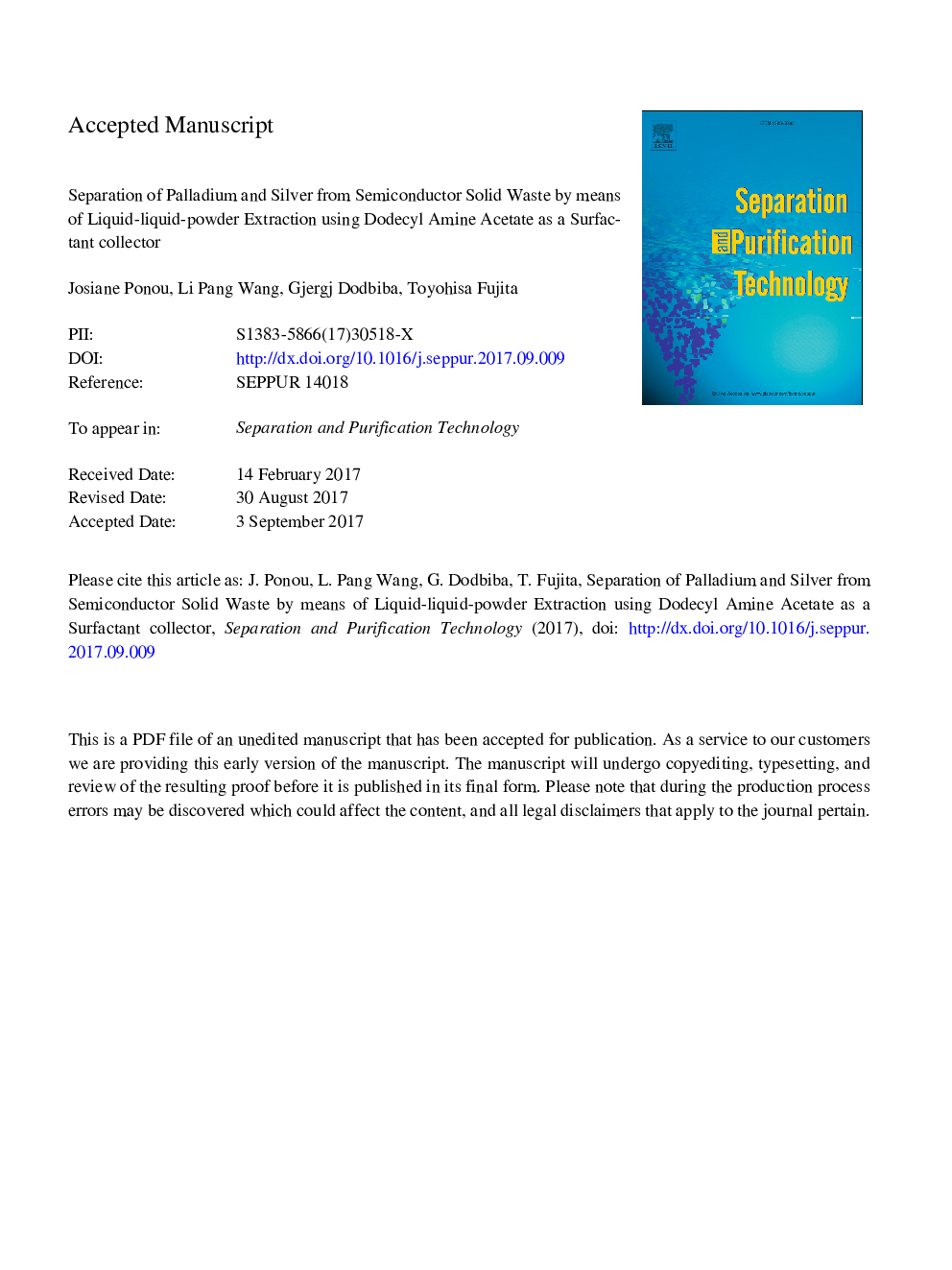| Article ID | Journal | Published Year | Pages | File Type |
|---|---|---|---|---|
| 4989506 | Separation and Purification Technology | 2018 | 21 Pages |
Abstract
Liquid-liquid-powder extraction (LLPE) is the process of transferring fine solid particles from one liquid phase to another immiscible liquid in contact across the liquid-liquid boundary using a surface-active agent as a collector. LLPE has been applied to semiconductor fine solid waste to extract valuable Pd and Ag particles from Al using dodecyl amine acetate (DAA) surfactant as collector, kerosene as an organic phase and pure water as the aqueous hydrophilic phase. Metal concentrations in each phase was dependent on solution pH, and the recovery of Pd and Ag was highly dependent on this parameter. However, a pH of 10 was found to be optimal for separation of precious metals from Al, with Pd and Ag concentrating in the kerosene phase under this condition. The metal distribution as a function of DAA dosage at pH 10, showed that Pd and Al reached their maximum extraction percentages at a DAA dosage of 0.15%, whereas the Ag extraction percentage reached a maximum at a dosage of 0.2%. Thus, 0.15% was determined to be the optimum DAA dosage, which gave Pd and Ag concentrations 6.05 and 3.6 times higher than the feed, respectively, with respective extraction percentages of 87.78 ± 3.72% and 87.42 ± 3.81%. Moreover, 74.52 ± 7.72% of Al could be separated from Pd and Ag.
Keywords
Related Topics
Physical Sciences and Engineering
Chemical Engineering
Filtration and Separation
Authors
Josiane Ponou, Li Pang Wang, Gjergj Dodbiba, Toyohisa Fujita,
